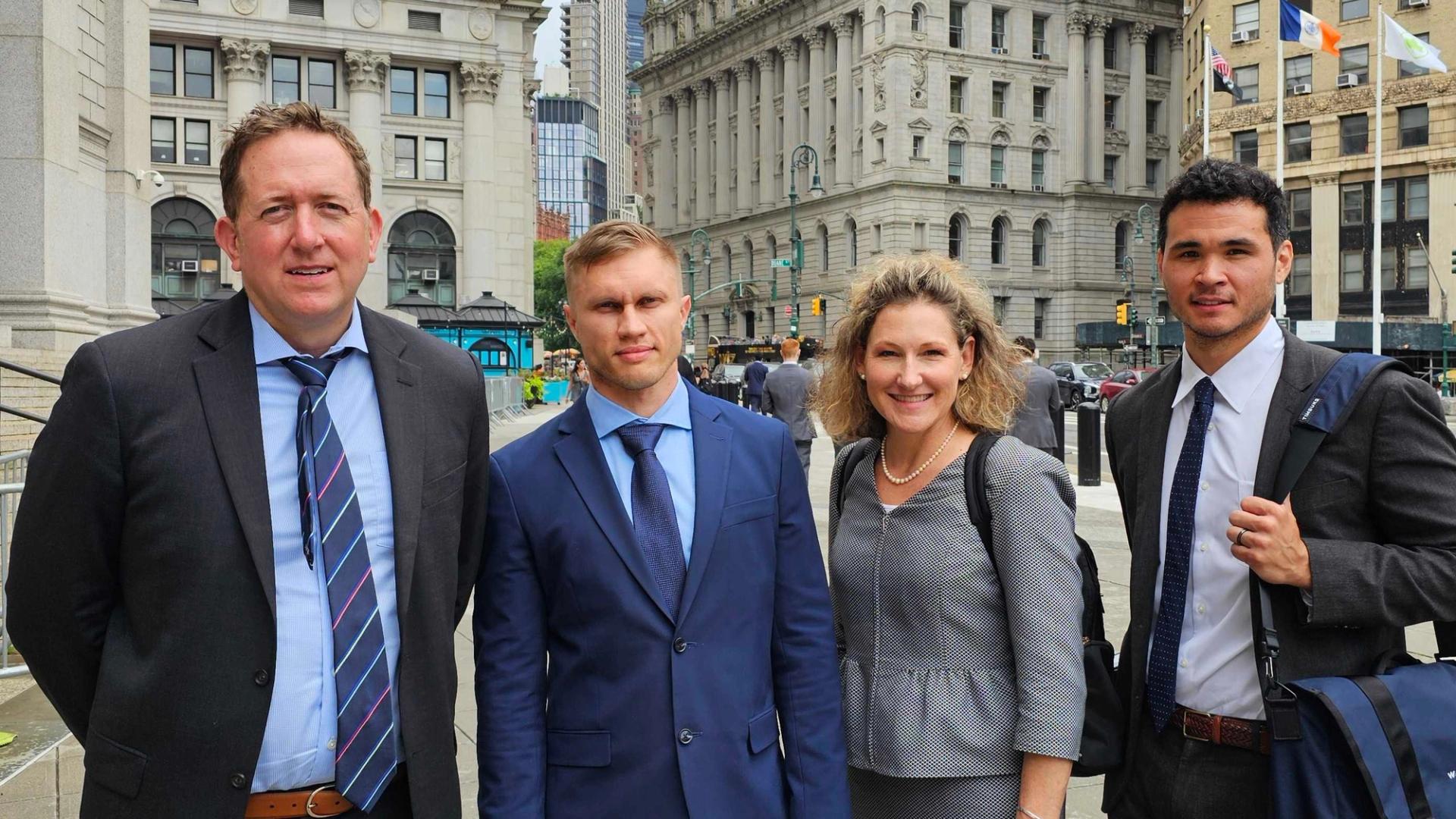See what’s trending right now
Solanain Cryptocurrency
an hour agoSolana's bullish momentum continues despite ETF delays, with a $1.1B gold tokenization initiative boosting its ecosystem and potential ETF approval possibly accelerating.
Cryptocurrency
After PancakeSwap ban, Turkey may target other DeFi services, regulators explain
negativeCryptocurrency
Turkey's financial watchdogs are cracking down on decentralized finance (DeFi) platforms, starting with the recent ban on PancakeSwap. Officials hinted this is just the beginning—more DeFi apps could face restrictions as regulators tighten oversight. They’re calling these apps "risky" and hinting at broader scrutiny, though specifics are still vague.
Editor’s Note: If you're using DeFi services in Turkey, brace for turbulence. The government’s move signals a tougher stance on crypto, which could limit access to popular tools or push users toward riskier workarounds. It’s part of a global tug-of-war between regulators and the fast-moving crypto world—but for now, Turkey seems to be leaning hard into control.
Tornado Cash Judge Will Not Permit Van Loon Verdict to Be Discussed During Upcoming Trial
neutralCryptocurrency
A judge has ruled that the outcome of developer Alexey Pertsev's recent conviction (related to Tornado Cash) can't be brought up during the upcoming trial of Roman Storm and Roman Semenov. Essentially, each case will be treated separately, preventing the earlier verdict from influencing this one.
Editor’s Note: This decision keeps the focus on the specific legal arguments in Storm and Semenov's case, rather than letting Pertsev's guilty verdict set the tone. It’s a procedural move, but an important one—showing courts are handling these crypto-related cases carefully, piece by piece. For the crypto world, it signals that legal battles over privacy tools like Tornado Cash won’t be resolved with blanket rulings. Each fight is its own.
Cardano Pulled Out Of El Salvador Deal, Hoskinson Claims
negativeCryptocurrency
Charles Hoskinson, the founder of Cardano, just dropped a bombshell in a recent interview: his team walked away from a potential deal with El Salvador’s government. Why? Because the proposed crypto airdrop—meant to boost adoption—reportedly included members of the notorious MS-13 gang. Hoskinson cited "serious legal and geopolitical concerns" as the dealbreaker, hinting at the messy ethical and regulatory pitfalls of mixing crypto with high-risk politics.
Editor’s Note: This isn’t just insider crypto drama—it’s a stark reminder of how tangled things get when governments try to fast-track crypto adoption. El Salvador’s aggressive Bitcoin push has already raised eyebrows, but Cardano’s exit suggests even blockchain advocates have limits. The MS-13 angle adds a dark twist, spotlighting how crypto’s anonymity can attract bad actors. For the industry, it’s another wake-up call: mass adoption isn’t just about tech—it’s about navigating real-world risks.
Ripple CEO Brad Garlinghouse Set To Testify Before US Senate
neutralCryptocurrency
Ripple's CEO Brad Garlinghouse is heading to Capitol Hill next month to speak at a Senate Banking Committee hearing about the future of crypto markets. The session, dubbed "From Wall Street to Web3," will dig into how regulators should handle digital assets—likely touching on Ripple’s own high-stakes legal battles with the SEC. Expect fireworks, or at least some pointed questions.
Editor’s Note: This isn’t just another corporate exec testifying—it’s a big moment for crypto’s push for clearer rules. Ripple’s been in a years-long fight with regulators, so Garlinghouse’s testimony could sway how lawmakers view the industry. Whether it leads to friendlier policies or more red tape, the outcome will ripple through the entire market.
UK Crackdowns On Crypto Tax Evasion: Investors To Face Fines Starting 2026
negativeCryptocurrency
The UK is tightening the screws on crypto tax dodgers with new reporting rules set to take effect in 2026. Investors who don’t play by the book—or just don’t report their crypto dealings—could face fines. It’s part of a bigger push to bring crypto under the same scrutiny as traditional investments, making sure everyone pays their fair share.
Editor’s Note: Crypto’s wild west days in the UK might be coming to an end. While this move aims to close tax loopholes and level the playing field, it’s another sign that governments are cracking down hard on digital assets. For everyday investors, it means more paperwork and potential penalties if they slip up—so keeping records straight is about to get a lot more important.
Court closes Tornado Cash sanctions case ahead of co-founder’s trial
neutralCryptocurrency
The legal showdown between crypto advocacy group Coin Center and the U.S. Treasury over sanctions against Tornado Cash—a cryptocurrency mixer—has wrapped up in court. This comes just before the trial of Tornado Cash’s co-founder, marking the end of a multi-year dispute. Coin Center’s director announced the closure on social media, though details on the outcome remain sparse.
Editor’s Note: This case was a big deal because it tested how far the government can go in regulating privacy-focused crypto tools. Tornado Cash lets users obscure transaction trails, which regulators argue aids money laundering—but critics say banning it sets a dangerous precedent for stifling financial privacy. With the co-founder’s trial still looming, the broader fight over crypto autonomy isn’t over yet.
Gate.io deletes page showing a $600M Pump.fun token sale
negativeCryptocurrency
Gate.io, a major crypto exchange, suddenly yanked a webpage that was promoting a whopping $600 million token sale by Pump.fun—a platform known for meme coin launches. The takedown happened without clear reasons, and their support team’s explanation on X (formerly Twitter) only added to the confusion, leaving traders scratching their heads.
Editor’s Note: When a crypto exchange quietly pulls the plug on a high-profile sale like this, it raises red flags. Was it a regulatory concern? A scam risk? Or just internal chaos? Either way, it’s another example of the Wild West vibes in crypto, where big money moves can vanish overnight—no questions answered. For investors, it’s a reminder to tread carefully when platforms act shady.
Russia Creates Registry of Crypto Mining Equipment to Tighten Oversight
neutralCryptocurrency
Russia is stepping up its control over cryptocurrency mining by creating an official registry of mining equipment. The government says this will help track miners, enforce taxes, and regulate energy use as the country moves to formalize the crypto industry.
Editor’s Note: This isn’t a ban on crypto mining, but it’s definitely a sign that Russia wants to keep a tighter grip on the sector. With mining operations often consuming massive amounts of electricity, the government likely sees this as a way to prevent tax evasion and manage energy demands. For miners, it could mean more paperwork—and possibly higher costs—but also a step toward legitimacy in a country that’s still figuring out its stance on crypto.
Why World Pulse Now?
Global Coverage
All major sources, one page
Emotional Lens
Feel the mood behind headlines
Trending Topics
Know what’s trending, globally
Read Less, Know More
Get summaries. Save time
Stay informed, save time
Learn moreLive Stats
Articles Processed
9,914
Trending Topics
168
Sources Monitored
211
Last Updated
43 minutes ago
Live data processing
How it works1-Minute Daily Briefing
Stay sharp in 60 seconds. Get concise summaries of today’s biggest stories — markets, tech, sports, and more
Why World Pulse Now?
Global Coverage
All major sources, one page
Emotional Lens
Feel the mood behind headlines
Trending Topics
Know what’s trending, globally
Read Less, Know More
Get summaries. Save time
Stay informed, save time
Learn moreLive Stats
Articles Processed
9,914
Trending Topics
168
Sources Monitored
211
Last Updated
43 minutes ago
Live data processing
How it works1-Minute Daily Briefing
Stay sharp in 60 seconds. Get concise summaries of today’s biggest stories — markets, tech, sports, and more







